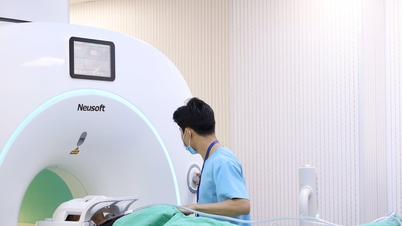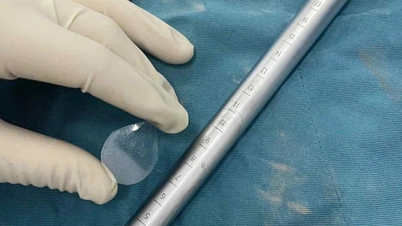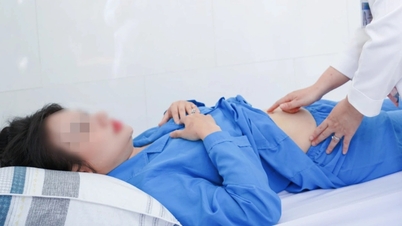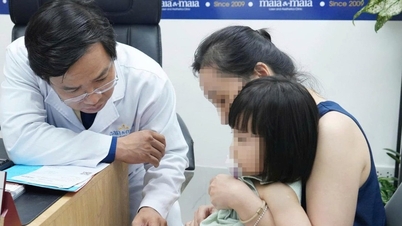Ho Chi Minh City: A 12-year-old girl had a mild fever and headache for three days. On the fourth day, she had chest pain, vomiting, and cold hands and feet. She was hospitalized and diagnosed with a viral infection with complications of myocarditis.
On September 3, Dr. Nguyen Minh Tien, Deputy Director of the City Children's Hospital, said that the child was admitted to the hospital drowsy, with low blood pressure, irregular heartbeat, difficult to detect pulse, and high cardiac enzyme levels. An echocardiogram showed that the ejection fraction had decreased to 22-26% (normal 60-80%).
The doctor diagnosed fulminant myocarditis, cardiogenic shock, and arrhythmia. The baby was intubated to help him breathe, given vasopressors and anti-arrhythmic drugs, and underwent ECMO (extracorporeal membrane oxygenation).
The baby was given many types of medicine, but the progress was still complicated, the heart rate decreased to 30-40 beats/minute, the doctor installed a pacemaker. After 9 days of ECMO, the doctors tried to handle the abnormal changes in heart rate, heart muscle and hemodynamics as well as continuous blood filtration to support the liver and kidney organs, helping the baby's heart to gradually recover. The baby was taken off ECMO and continued supportive treatment in the intensive care unit.
"Due to the erratic weather, cases of viral infections with complications of myocarditis may appear," the doctor analyzed. Myocarditis is a type of inflammation of the heart muscle caused by a virus, damaging heart muscle cells, reducing heart muscle contractions, leading to circulatory collapse, causing the heart to dilate, the heart muscle to contract very weakly, and cardiac enzymes to increase due to the release of damaged heart muscle cells. The disease is difficult to detect when the initial symptoms are very vague, easily confused with other diseases such as colds.
Myocarditis usually occurs in children 2-10 years old. Children under 24 months of age often have severe illness due to weak resistance. Some cases of mild myocarditis will heal on their own. Some children have no symptoms before but the disease progresses very quickly, is severe, has a high risk of death, and if they survive, they are likely to have heart failure or arrhythmia later.
Doctor Tien recommends that children with mild fever, fatigue, headache, vomiting, abdominal pain, pale complexion, pale hands and feet, pale fingernails, fainting, chest pain... should be quickly taken to a medical facility with a pediatric specialist for examination, early diagnosis of myocarditis and appropriate treatment.
Prevent diseases by limiting children's contact with adults who have contracted viral diseases. Provide children with adequate vitamins and minerals. Vaccinate children against diphtheria, influenza, rubella, mumps, etc. to increase their resistance to disease. School-age children should practice the habit of washing their hands before eating and after using the toilet.
Le Phuong
Source link


![[Photo] Hanoi morning of October 1: Prolonged flooding, people wade to work](https://vphoto.vietnam.vn/thumb/1200x675/vietnam/resource/IMAGE/2025/10/1/189be28938e3493fa26b2938efa2059e)



































![[Photo] Panorama of the cable-stayed bridge, the final bottleneck of the Ben Luc-Long Thanh expressway](https://vphoto.vietnam.vn/thumb/1200x675/vietnam/resource/IMAGE/2025/9/30/391fdf21025541d6b2f092e49a17243f)

























































Comment (0)